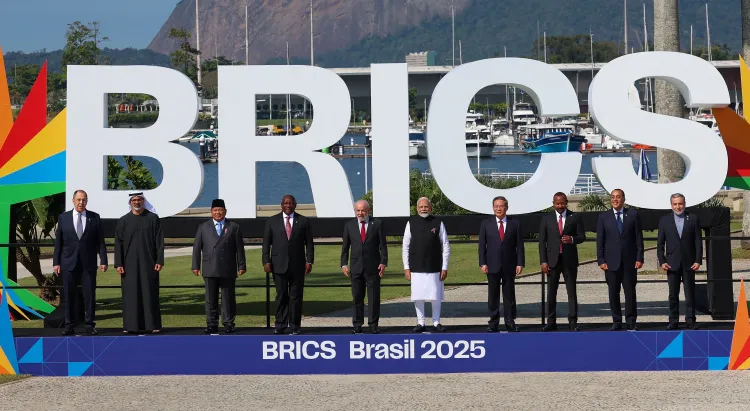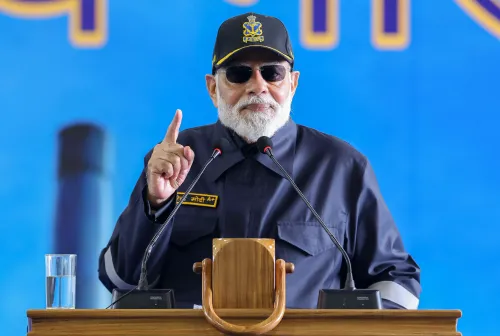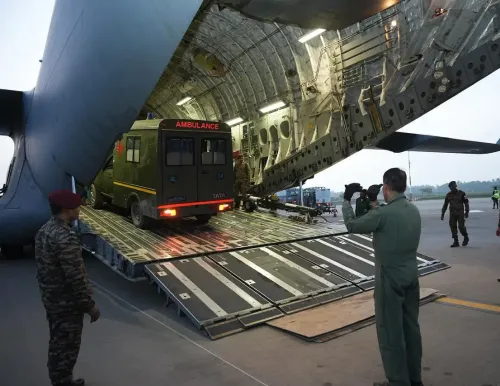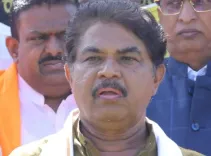Are BRICS Leaders Really Concerned About US Tariff Hikes?

Synopsis
Key Takeaways
- BRICS leaders express grave concerns over rising tariffs.
- Critique of developed nations imposing trade barriers under environmental claims.
- Call for a fair multilateral trading system for developing countries.
- Support for India’s BRICS chairmanship and summit hosting.
- Condemnation of attacks without naming specific nations.
Rio de Janeiro, July 7 (NationPress) Amid the ongoing trade conflict initiated by the United States, BRICS leaders have expressed their serious concerns regarding the unjustifiable escalation of tariffs, although they refrained from directly naming Washington in their collective statement.
In their unified declaration, they stated, “We express grave concerns about the increase of unilateral tariff and non-tariff measures that distort trade and contradict WTO [World Trade Organisation] regulations.”
Furthermore, they criticized developed nations that attempt to impose trade barriers on developing countries under the guise of environmental issues while simultaneously opposing unilateral tariffs that impact these nations.
As stated in their declaration, “The rise of trade-restrictive measures, whether through the indiscriminate increase of tariffs or protectionist policies framed as environmental aims, jeopardizes global trade and disrupts supply chains.” The statement did not specify any countries or coalitions, such as the European Union.
They further noted that such actions “create uncertainty in international economic and trade activities, potentially worsening existing economic inequalities and hindering global economic advancement.”
As representatives of the Global South, BRICS leaders advocated for preferential treatment for developing nations within a “rules-based, open, transparent, fair, inclusive, equitable, non-discriminatory, consensus-driven multilateral trading system.”
The extensive 126-paragraph statement from the 11 BRICS countries encompassed a wide array of topics, from outer space to the deep sea.
They extended complete support for India taking the BRICS chair next year and for hosting the summit.
The declaration denounced the April 22 attack in Pahalgam and called for justice for the perpetrators and their supporters.
While it did not specify the terrorist group or its supporters, this was seen as a diplomatic victory for India against China, the ally of Pakistan, whose proxies carried out the attack.
On contentious matters, their statement reflected a level of moderation to achieve consensus.
The declaration “condemned” the attacks on Iran’s nuclear facilities without naming the US or Israel.
However, it did express support for establishing a nuclear-weapon-free zone in the Middle East, which could mitigate Iran’s nuclear aspirations and Israel’s undisclosed nuclear capabilities.
In a tempered tone, they voiced “grave concern” over ongoing Israeli assaults on Gaza while also urging for the release of hostages taken by Hamas, without naming the group.
Regarding Ukraine, they reiterated calls for mediation and diplomatic efforts.
Yet, without mentioning Ukraine specifically, they strongly condemned “in the strongest terms” the attacks on civilian infrastructure in Bryansk, Kursk, and Voronezh regions of Russia.
Lastly, the leaders opposed the militarization of outer space and welcomed the establishment of the BRICS Deep-Sea Resource International Research Centre in Hangzhou, China.










